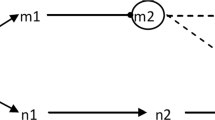Abstract
Ever since Davidson first articulated and defended anomalous monism, nonreductive physicalists have struggled with the problem of mental causation. Considerations about the causal closure of the physical domain and related principles about exclusion make it very difficult to maintain the distinctness of mental and physical properties while securing a causal role for the former. Recently, philosophers have turned their attention to the underlying metaphysics and ontology of the mental causation debate to gain traction on this issue. Cynthia MacDonald and Graham MacDonald have followed suit and argue that the solution to the nonreductivist’s troubles lies in a particular metaphysical view of events. They claim that an appropriately formulated property exemplification account of events resolves the problem and secures the causal relevance of mental properties. I argue that while this approach might get us the causal efficacy of mental events, it does not provide the sought-after causal relevance of mental properties. I show that the reason MacDonald and MacDonald stumble on the problem of causal relevance is—ironically—due to features of their view of events.
Similar content being viewed by others
Notes
Though see (Whittle 2007) for an argument that the co-instantiation thesis might not operate as desired in the arena of mental causation.
A reviewer for this journal rightly notes that additional premises are needed in order to ensure the applicability of the supervenience argument to MacDonald and MacDonald’s notion of causal relevance. First, one would need to reformulate Kim’s causal exclusion principle in terms of the causal role of properties. The reviewer suggests something along these lines: If event c causes event e, and c is a sufficient cause of e, and there is a property P of e such that possession of P makes c a sufficient cause of e, then no other property can make c a sufficient cause of e (barring property overdetermination). Additionally, one would need to characterize causal relevance in terms such as these: Property F of event c is causally relevant to e if and only if e’s exemplifying F makes c a sufficient cause of e. It is, of course, a complex matter whether these additional premises are uncontroversial. It is also unclear whether or not one can treat the M/P and M*/P* instances as single events while preserving Kim’s argument (See Marras 2007, Marras and Yli-Vakkuri 2008). However, my main aim was not here to show that MacDonald and MacDonald necessarily fall prey to the supervenience argument, but that Kim’s argument shows us that there is reason to doubt the assumption that the dependence of a mental property on a physical one ensures the causal relevance of the former.
This is, I take it, precisely why David Robb (2001) tries so hard to deny that it makes any sense to say that tropes themselves have parts or aspects.
References
Davidson, D. (1993). Thinking causes. In Heil & Mele (Eds.), Mental causation. Oxford: Clarendon.
Kim, J. (1976). Events as property exemplifications. In Brand & Walton (Eds.), Action theory. Dordrecht: Reidel.
Kim, J. (1988). Explanatory realism, causal realism, and explanatory exclusion. Midwest Studies in Philosophy, 12, 225–240.
Kim, J. (1998). Mind in a physical world: An essay on the mind-body problem and mental causation. Cambridge: MIT Press.
Kim, J. (2005). Physicalism, or something near enough. New Jersey: Princeton University Press.
Lombard, L. B. (1986). Events: A metaphysical study. London: Routledge & Kegan Paul.
Macdonald, C., & Macdonald, G. (2006). The metaphysics of mental causation. Journal of Philosophy, 103, 539–576.
Marras, A. (2007). Kim’s supervenience argument and nonreductive physicalism. Erkenntnis, 66, 305–327.
Marras, A., & Yli-Vakkuri, J. (2008). The ‘Supervenience Argument’: Kim’s challenge to nonreductive physicalism. In Gozzano & Orilia (Eds.), Tropes, universals and the philosophy of mind: Essays at the boundary of ontology and philosophical psychology. Frankfurt: Ontos Verlag.
Robb, D. (2001). Reply to Noodhof on mental causation. The Philosophical Quarterly, 51, 90–94.
Smith, P. (1981). Hess on reasons and causes. Analysis, 41, 206–209.
Whittle, A. (2007). The co-instantiation thesis. Australasian Journal of Philosophy, 85, 61–79.
Author information
Authors and Affiliations
Corresponding author
Rights and permissions
About this article
Cite this article
Campbell, N. Do MacDonald and MacDonald Solve the Problem of Mental Causal Relevance?. Philosophia 41, 1149–1158 (2013). https://doi.org/10.1007/s11406-013-9457-y
Received:
Revised:
Accepted:
Published:
Issue Date:
DOI: https://doi.org/10.1007/s11406-013-9457-y




